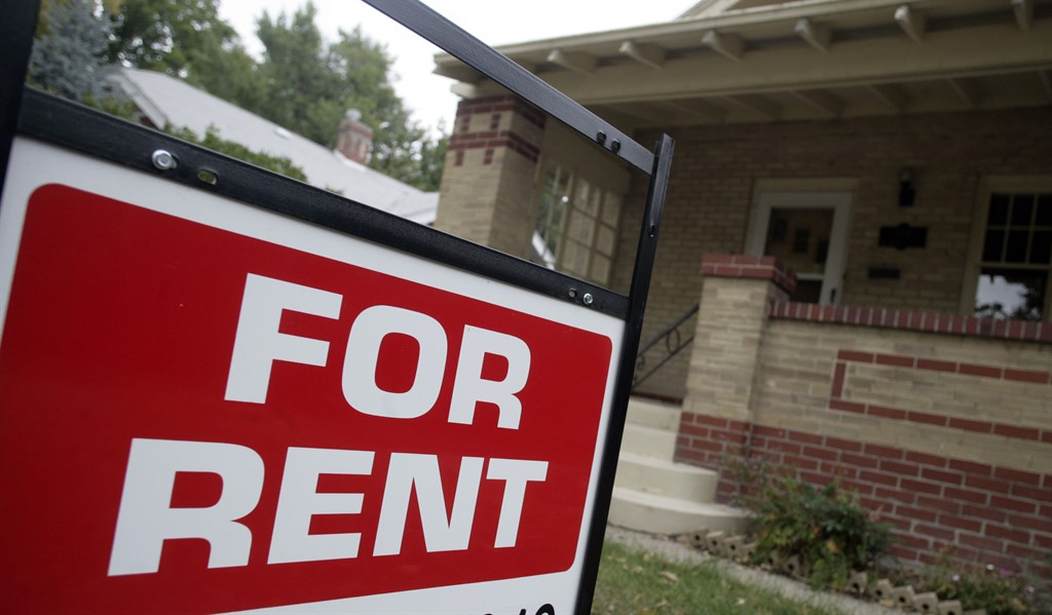Rarely has a word been subject to so much misuse in recent years as “stimulus.” The Coronavirus Aid, Relief, and Economic Security Act (CARES), overwhelmingly passed by Congress and signed by President Trump on March 27, represents an apex of this language malpractice. The stated purpose of this $2.2 trillion “stimulus plan” is to boost our economy in the wake of virus-induced mass layoffs and business closings. But the implicit purpose is paying people not to work. Section 4022, a residential landlord bailout, effectively does that. And it may prove very expensive.
Fear of COVID-19 has triggered an economic downturn potentially rivaling that of the Great Depression. With “social distancing” now the gold standard for staying healthy, especially in venues where people congregate (e.g., restaurants, theaters), employers, prodded by state mandates and federal guidelines, are closing shop or severely restricting hours. A staggering 22 million unemployment insurance claims have been filed within the past month. For people without a job, even given the enhanced unemployment benefits authorized by CARES, the risk of losing one’s housing has become real. Though the U.S. Department of Housing and Urban Development now spends nearly $24 billion a year on Section 8 low-income rental vouchers, some tenants are getting desperate. Since many governors have seen fit to shut down state economies, the range of employment alternatives isn’t that wide.
Section 4022 provides temporary respite. It authorizes up to 180 days of forbearance for federally-backed residential mortgages on rental properties with one-to-four dwelling units. If a participating landlord needs more time to stay current, he may apply for a 180-day extension. In any case, there are no fees, penalties or interest.
To supporters, this measure is essential to our economy. With forbearance, landlords presumably are less likely to evict non-paying tenants, and tenants thus are less likely to wind up in a homeless shelter or on the street. But like all bailouts, this one may resolve a short-term crisis by laying the groundwork for a worse one down the road.
Recommended
Tenant anxiety meanwhile is finding political expression. Radical housing activists, not letting a crisis go to waste, are organizing rent strikes. Hashtags such as #CancelRent, #KeepYourRent, #RentZero and #FoodNotRent have been popping up and making an impact. According to an ad hoc online group, Rent Strike 2020, at least 1.5 million renters nationwide have signed an agreement to withhold rent starting May 1. Another group, 5 Demands, is providing information on how to conduct “accessible and empowering” rental strikes. One of its organizers explains: “All you need is to be able to talk to your neighbors and tenants around you. If you knock on every door in your building and ask them to sign a common letter to your landlord, you have already organized.”
If such collective resistance gains traction, it could seriously disrupt landlord cash flow – precisely the purpose. As a consequence, property owners would demand more federal intervention. Even if rent strikes subside, more intervention may happen. Rent strikes, after all, can backfire. Aggressive government support and control would cover investment risk, pleasing landlords and tenants alike. The rest of us, unfortunately, would pay.
Local government officials aren’t likely to mind. They have plenty to gain and nothing to lose by leaning on Washington, all the while maintaining austerity measures. Indeed, their constituents are likely to praise their “leadership.” Elected officials in a number of major U.S. cities, including Boston, Los Angeles, New York City, Philadelphia and San Francisco, in fact, have joined hands to persuade federal and state lawmakers to cancel rental and home mortgage payments.
Since removing the price mechanism from the housing market is a radical notion, congressional radicals understandably are for it. Case in point: On March 31, the Brooklyn, N.Y.-based Center for Popular Democracy organized a nationwide conference call for about 200 housing activists to explain how renters and homeowners can skip payments while avoiding eviction. Participants included Reps. Jesus “Chuy” Garcia, D-Ill., and Rashida Tlaib, D-Mich. Ms. Tlaib has made clear her end game. In response to the Italian government’s cancellation of mortgage payments, she excitedly tweeted: “Yes, this is exactly what we need to be doing.”
As long as there is widespread support for shutting down economic activity as a means of quarantining the coronavirus, it will be difficult to reverse a cycle of job loss and rent nonpayment. That is why Section 4022 is likely to last a while. Indeed, rather than repeal the program, Congress is far more likely to expand it to include multifamily structures.
To head off any worsening situation, we must reopen our economy. Realistic tradeoffs between restoring full employment and protecting public health can be debated. What can’t be debated is the fact that shutting down an economy has highly negative consequences. We are witnessing those consequences. COVID-19 kills. So can the lack of a job.
Carl F. Horowitz is senior fellow with National Legal and Policy Center, a Falls Church, Va.-based nonprofit organization dedicated to promoting ethics and accountability in American public life.

























Join the conversation as a VIP Member